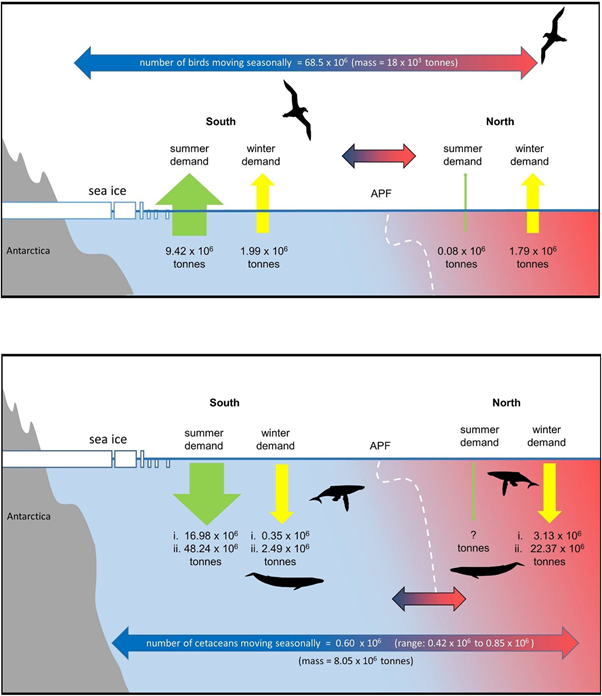Southern Ocean ecosystems are often seen as largely separate from the rest of the global system. In this paper, we consider the degree of ecological connectivity at different trophic levels, linking Southern Ocean ecosystems with the global ocean, and their importance not only for the regional ecosystem but also the wider Earth system. We find that there are extensive ecological exchanges into and out of the Southern Ocean involving oceanographic processes and organism movement, resulting in transfers of nutrients, carbon and organisms. Millions of seabirds and hundreds of thousands of cetaceans move north out of polar waters in the austral autumn, and southwards in spring, interacting in food webs across the Southern Hemisphere. We also consider human activities in the Southern Ocean, which arise from nations across the world where they are important in local communities as well as national economic, scientific, and political systems. As a result of the extensive connectivity, future changes in Southern Ocean ecosystems will have consequences throughout the Earth system, affecting ecosystem services with socio-economic impacts across the world. Improving understanding of Southern Ocean ecosystems and their global connectivity is critical for interpreting current change and projecting impacts of future change.
Read more here
